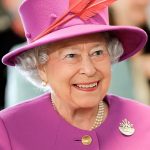As a prominent figure in British history and a member of one of the most storied royal families in the world, King Charles’ financial standing is a topic of considerable interest. With his net worth, King Charles epitomizes wealth derived from a blend of inheritance, astute investments, and the inherent privileges associated with royalty. This article delves into the various aspects of King Charles’ life, providing a detailed examination of his net worth, early life, physical stature, personal life, and illustrious career.
King Charles Net Worth
King Charles net worth of $800 million is a testament to the wealth amassed through his various endeavors, primarily anchored by the Duchy of Cornwall. Established in 1337, the Duchy stands as a historic estate sprawling over 130,000 acres across 23 counties in England and Wales. Its significance lies not only in its vast expanse but also in its diversified revenue streams, chiefly derived from land management practices and rental income. This estate serves as the cornerstone of King Charles’ financial portfolio, providing a steady and substantial flow of income.
Beyond the Duchy, King Charles possesses personal estates that further contribute to his formidable wealth. These properties, managed with care and attention, augment his financial standing, adding layers of stability to his overall net worth. The strategic management of these assets ensures a diversified approach to wealth accumulation, mitigating risks and maximizing returns.
Moreover, King Charles’ financial acumen extends to strategic investments across various sectors. These investments, carefully curated and managed by trusted advisors, serve as additional pillars supporting his net worth. Diversifying his portfolio beyond real estate, these investments offer avenues for growth and expansion, further solidifying his position among the wealthiest individuals.
The combination of prudent management of ancestral estates, strategic personal investments, and the continued success of the Duchy of Cornwall culminates in King Charles’ remarkable net worth of $800 million. This figure not only reflects his personal wealth but also underscores the enduring legacy of his lineage and the sustained prosperity of his domains. As custodian of these estates and steward of his financial assets, King Charles exemplifies a judicious approach to wealth management, ensuring continued prosperity for generations to come. 0
King Charles Early Life and Family
King Charles, born on November 14, 1948, at Buckingham Palace, embodies the pinnacle of British monarchy as the eldest son of Queen Elizabeth II and Prince Philip, Duke of Edinburgh. His lineage is a tapestry woven with the threads of British royal history, evident in his full name: Charles Philip Arthur George. This heritage laid the foundation for his destiny from the moment of his birth.
Education served as the cornerstone of King Charles’ formative years. He embarked on his scholastic journey at Cheam School, where the seeds of knowledge were sown, fostering a curiosity that would define his academic pursuits. His educational odyssey continued at Gordonstoun, an institution renowned for its emphasis on character development and outdoor activities. Later, he pursued higher learning at Trinity College, Cambridge, initially delving into the mysteries of archaeology and anthropology before transitioning to the corridors of history. Each academic endeavor provided him with a broader perspective and a deeper understanding of the world, preparing him for the weighty responsibilities that awaited him.
Yet, it was not merely academia that shaped King Charles’ early life. He was enveloped in a world where tradition and protocol were omnipresent, where the rites of passage were imbued with centuries-old customs. From his first breath, he was destined for greatness, nurtured within the hallowed halls of Buckingham Palace, where every stone whispered tales of kings and queens past. His upbringing was a delicate dance between the past and the present, where the echoes of history guided his steps toward an uncertain future.
Central to King Charles’ early life was his familial bonds, woven tightly like the threads of a tapestry. His siblings—Princess Anne, Prince Andrew, and Prince Edward—were not just companions but comrades, sharing in the trials and triumphs of royalty. Together, they navigated the complexities of their privileged existence, each contributing to the fabric of their family’s legacy.
King Charles Height and Weight
King Charles, standing at a height of 5 feet 9 inches (1.778 meters), possesses a physical presence that epitomizes regal elegance and stature. His height places him slightly above the median for men in many countries, affording him a commanding presence in both formal ceremonies and casual interactions. This height, though not towering, is emblematic of his royal lineage and contributes to his visibility in public engagements, ensuring that he remains a prominent figure in the public eye.
Throughout his reign, King Charles has displayed a commitment to maintaining a healthy and active lifestyle, which is evident in his fluctuating weight. Despite variations, he consistently embodies a physique indicative of overall well-being and vitality. His dedication to regular physical activities, such as polo and hiking, not only serves to preserve his physical fitness but also reflects his commitment to leading by example in matters of health and wellness.
The fluctuation in weight, within healthy ranges, underscores King Charles’ adaptability and ability to maintain balance amidst the demands of royal duties. His engagement in diverse activities not only contributes to his physical health but also serves as a means of connecting with various segments of society, further enhancing his approachability and relatability as a monarch.
Beyond the realm of physical attributes, King Charles’ stature embodies a symbolic significance that transcends mere measurements. His imposing yet approachable demeanor exudes authority and confidence, reinforcing perceptions of leadership and stability. This physical presence, combined with his regal bearing and dignified demeanor, solidifies his influential persona both domestically and on the global stage.
King Charles Relationship Status and Personal Life
King Charles’ personal life has been a subject of immense public interest. His first marriage to Lady Diana Spencer in 1981 was a global spectacle, producing two sons, Prince William and Prince Harry. Despite the fairytale beginning, their marriage faced numerous challenges, culminating in their separation in 1992 and eventual divorce in 1996. The untimely death of Princess Diana in 1997 further added to the complexities of his personal life.
In 2005, Charles married Camilla Parker Bowles, now Queen Consort, in a civil ceremony at Windsor Guildhall. Their relationship, initially controversial due to its beginnings during his marriage to Diana, has since gained acceptance, with Camilla playing a supportive role in his duties and charitable endeavors. King Charles’ personal life, marked by its ups and downs, reflects his resilience and commitment to his role as a monarch and father.
King Charles Career
King Charles’ career is characterized by his gradual evolution from a prince to a king, marked by significant milestones and achievements.
Early Career
King Charles began his public duties at an early age, undertaking his first royal engagement in 1966. His early career was heavily influenced by his service in the Royal Navy and Royal Air Force, where he trained as a jet pilot. This military service instilled in him a sense of discipline and duty, which has been evident throughout his public life.
Prince of Wales
In 1969, Charles was formally invested as the Prince of Wales in a grand ceremony at Caernarfon Castle. This role involved extensive public engagements, both in the UK and abroad, fostering diplomatic relations and supporting charitable causes. As Prince of Wales, Charles founded The Prince’s Trust in 1976, an organization dedicated to helping young people achieve their potential through education, training, and employment opportunities. The trust has since assisted over one million young people, demonstrating Charles’ commitment to social causes.
Advocacy and Charitable Work
King Charles’s advocacy and charitable work are hallmarks of his dedication to environmental conservation and sustainable living. With a focus on promoting organic farming, renewable energy, and environmentally respectful architecture, he has made significant strides in these areas. One of his notable initiatives, the Duchy Originals brand, has not only offered consumers organic and sustainably produced products but has also served as a platform to raise awareness about the importance of sustainable agriculture.
Moreover, through the Sustainable Markets Initiative, King Charles has extended his advocacy to address broader issues surrounding climate change and ecological sustainability. This initiative seeks to mobilize public and private sector leaders to collaborate on solutions that prioritize environmental stewardship while fostering economic growth. By leveraging his influence and network, Charles has been able to amplify the urgency of these issues on a global scale, garnering recognition and respect for his leadership in this domain.
His commitment to these causes goes beyond mere advocacy; King Charles actively participates in various charitable endeavors aimed at promoting environmental conservation and sustainable development. From supporting research initiatives to funding projects that mitigate the impact of climate change, his philanthropic efforts reflect a deep-seated commitment to leaving a positive environmental legacy for future generations.
Ascension to the Throne
Following the passing of Queen Elizabeth II in 2022, Charles ascended to the throne, becoming King Charles III. His coronation marked the beginning of a new era for the British monarchy. As king, he has continued to emphasize the importance of tradition while also addressing contemporary issues facing the nation and the world. His reign is expected to balance the preservation of royal heritage with a forward-looking approach to governance and societal challenges.
Legacy
King Charles’ legacy is multifaceted, encompassing his contributions to charitable causes, environmental advocacy, and his role in modernizing the monarchy. His efforts to bridge the gap between tradition and modernity have shaped the British royal family’s relevance in the 21st century. His dedication to public service, coupled with his forward-thinking initiatives, ensures that his legacy will be remembered for its impact on both the monarchy and broader societal issues.












